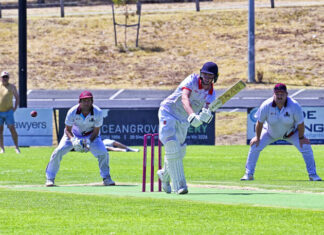By NOEL MURPHY
NEW security cameras in central Geelong will fail to prevent drunken crimes, according to a city retail leader and former mayor.
Hayden Spurling called for zero tolerance, more police and tighter licensing laws to tackle booze-fuelled assaults and vandalism.
The chair of Geelong Regional Retailers said the 11 new cameras, announced this week, were at best just part of a package to clean up the city.
“If you were in a condition to be mindful of cameras they could probably work but most of our overly-imbibed aren’t really aware of all that much,” Mr Spurling said.
“I like the idea of zero tolerance.
“We’ve got to be serious about this. We’ve got to start cracking down.”
Mr Spurling said Geelong should consider zero tolerance initiatives in Frankston, such as on-the-spot exclusion orders banning troublemakers.
Extra police and earlier closing hours at licensed venues were also needed, he said.
“It’s probably a case of: number one, more police; number two, zero tolerance, which I think has a lot going for it, although in order to police that you need more police; and, thirdly, you need to look at the licensing of premises. There’d be very little, if anything, in reduction of turnover for venues that close early.”
Police and Geelong MP Ian Trezise have called for earlier closing hours at city nightclubs, with lockouts as early as 1am.
Stakeholders continue to discuss lockouts but venue operators argue that initiatives such as ID scanning, bans on cheap drink promotions and safe taxi ranks have reduced alcohol-related crime.
But Mr Spurling said they achieved little in reducing vandalism of city stores.
Traders believed clubbers’ urine, excrement and rubbish was discouraging shoppers, he said.
“I’ve seen everything from someone being sick to excrement to McDonald’s hamburgers smeared over shop windows.”
Mr Spurling said vandals often broke shop windows, costing $2000 to $3000 each.
“Insurance premiums go up, there’s damaged stock. Quite often people stumble in and cut themselves – I’ve seen blood trails going right up Ryrie Street to the hospital.
“All city traders share these concerns. It’s all about perception – if people think this is occurring it gives them another reason not to come in.
“We want a safe city.”








